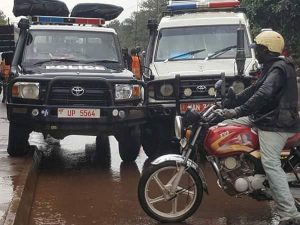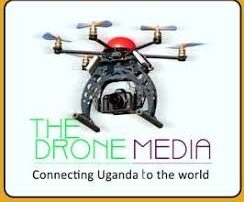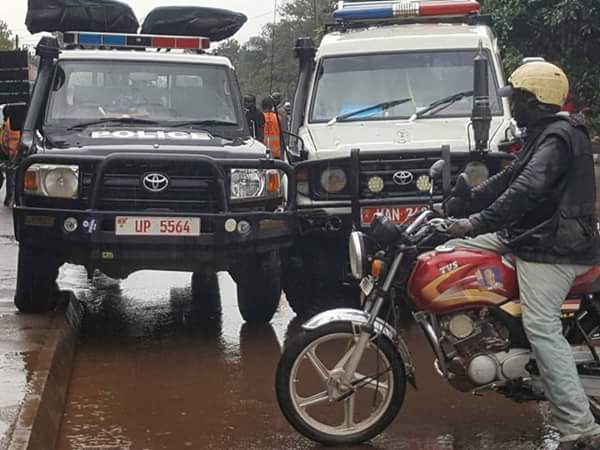UGANDA’S SCARY DRUGS PROBLEM

Uganda is now known as producer, consumer and transit country for drug trafficking. The drug abuse in Uganda has been described as problem among marginal groups; who are unemployed.
Whereas cannabis is mainly abused by street and school youths as well as soldiers; heroin and cocaine is consumed by urban rich; the consumption of the two types of drugs is prevalent among high income groups; who include Somali refugees and youths from middle class families.
Heroin sold on the street often is mixed with other substances such as sugar; starch or chlorine or quinine. An added risk results when heroin is mixed with poisonous substances such as strychnine.
Drug dealers in Uganda mixed heroin or cocaine with other substances so that they can have more of the drug to sell. These fillers make the drug even more dangerous because the user does not know how much cocaine or heroin he or she is consuming. The fillers all can add harmful side effects to an already unsafe drug.
This is how it finds its way into Ugandan Market. In Uganda there is free movement and globalization has aided this free movement. Besides, crime is moving at a fast rate just as technology has moved so fast. It is now a quick and free movement. Even crime and drugs are also moving at a fast rate.
Uganda is a transit country for drugs and human trafficking based on its porous borders, even Entebbe International Airport has challenges.
The drug dealers are now advanced; they conceal drugs in books; fridges and shoes’ soles. Others set fake pharmaceutical businesses to buy the chemicals needed to manufacture illicit drugs, including methamphetamine, amphetamine and MDMA, also known as ecstasy.
Anybody with a payable account or credit card, including young people, can buy drugs through a phone consultation with a so –called doctor by e-mail.
There are many ways of transporting the drugs; some come as gifts; others are stuffed in container-goods; body parts of cars and women bags.
Drug trafficking is now related to human trafficking because our people are very poor, they are convinced that if they swallow pellets and succeed they will be richer. Others are promised jobs abroad but after reaching there they are forced to swallow pellets. In some cases they die on transit.
Uganda has been a transit or conduit for so long but now people started serious consumption. However, this is because of weak laws and porous borders. For instance, no specific laws; the fine is shs 1m which drug dealers always find it easy to pay and they get out so quickly. The drug dealers are very organized in their trade.
Mugyenyi says the only law they use is section 47 of the National Drugs and Pharmacy Act. He further says that stamping this bad vice off there is for enactment of a new law. This law should involve many sectors; in other words, it should be sectorial.
‘it cannot be done by police alone. For example the murders in universities are caused by drugs, mainly kuba and cannabis, which students mix even in their tea,’ Mugyenyi explains.
Mugyenyi blames legislators who not given this field much attention yet it is a timing bomb. There is need for many bodies which include ministries, NGOs; and other relevant authorities like immigrations and civil aviation to be fully trained and facilitated.
Immigration at Entebbe International Airport has only one scanner and two police dogs. Sometimes cargoes are not scanned; there is need for manpower and training for both police and immigration.
Immigration officials should be trained to detect drug dealer according to chart routes and still immigration should be facilitated to deport foreigners immediately they have served their sentences.
The challenge for Uganda Police is having is that it is not moving at the same pace with the drug dealers; they are technologically advanced.
‘You may find the only scanner at Entebbe International Airport is not functioning because there has been cases where drug suspects who passed through the scanner , later arrested with the drugs!’ Asuman Mugyenyi says.
Mugyenyi says that cocaine supplied to Ugandan market is mainly from Mexico and Latin America through west African countries which include Nigeria; Benin; Togo, Guinea; Ghana and Cameroon. Some of these drug dealers travel on land, fearing that if they use air it may be detected. However, there are those who travel by air.
Mugyenyi further explains that police experts can look at the travellers rout charts and suspect that someone has swallowed pellets. After someone has been suspected can be monitored for some time until the proper results are got.
Uganda’s problem is not the consumption of cocaine but cannabis, which is locally grown in Wakiso; Mpigi; Bugiri and Iganga on large scale for commercial purposes. It is take to Kenya; Somalia and elsewhere through lake Victoria and other porous inland borders.
Mugyenyi confirmed that all slums in Kampala are drug hubs, but they mainly sell cannabis. Cocaine and heroin are for dollar people -high income earners.

